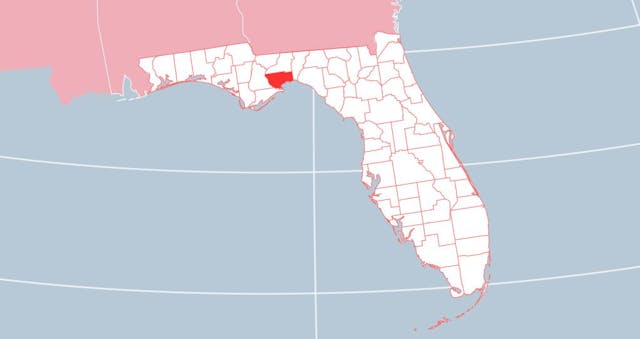Rehabs in Wakulla
Wakulla County is situated in the Big Bend region in the northern part of the U.S.
There were 30,776 people living there as of the 2010 census. Crawfordville serves as its county seat.
Unfortunately, substance abuse also has an impact on Wakulla County. Since the start of the drug crisis, a large number of rehabilitation facilities have sprung up all throughout the nation to help opioid users successfully overcome their addiction.
Fortunately, there are a variety of services available to the community in the area. That includes outpatient treatment, substance use counseling, prevention measures, as well as teen addiction therapy, and support groups.
Read this post to find out more about the rehabs in Wakulla County. Knowing how to care for yourself or your loved ones will benefit you.
Rehabilitation in Wakulla County
Each facility treats patients with its unique evidence-based approaches. Clients discover friendly employees and knowledgeable experts. Each facility has a different treatment type, and many rehabs build their patient-centered care around them.
The environment at Wakulla rehab facilities is calm. The slow-paced, laid-back environment that the area’s recovery centers establish encourages people to flow with the situation.
Detox, PHP, Outpatient and Inpatient programs, Acceptance Commitment Therapy (ACT), CBT, Interpersonal and Solution Focused Therapy (SFT), and 12-Step programs are a few of the ones that the recovery centers offer.
Detox
The initial step in the substance abuse healing process is detox. But it's not quite the same as rehabilitation. Detox is the process of removing harmful chemicals from the body, such as alcohol or drugs. So, it may help the body and mind recover from drug misuse.
On the other hand, it is a medical procedure but it's not addiction treatment. It's crucial to make this distinction because dependency is a behavioral health issue that has an impact on the body as well as the mind.
If you've used drugs frequently and too much and have become physically dependent on them, detox is an essential part of the recovery process.
Inpatient
To overcome their dependency, patients must consider these plans, often known as residential therapy. Patients receive 24-hour medical and emotional care while they are housed in a clinic.
So, residents of inpatient treatment can totally focus on getting well and maintaining sobriety without the distractions of everyday life. In this treatment center, a typical day is fully planned and accounted for.
To support residential recovery, therapists, counselors, and psychiatrists visit with patients one-on-one as well as in groups. On average, this program lasts between 28 days and 6 months.
Outpatient
Clients live at home or in sober living clinics. They spend the day traveling to a treatment center for more structure and support. In contrast to the inpatient one, which requires that patients stay in a clinic during their therapy, outpatient care gives patients more independence.
Anyone in need of healing can benefit from this plan. However, some people are better suited to it than others. It might be the best option for you if you need an aftercare program following inpatient rehab. Also, it is the best option for you if you are in the early stages of addiction. It is a good option if you have obligations and duties you can't break, or are seeking a less expensive alternative.
Partial Hospitalization Program
A PHP connects the acute, regulated environment of the residential facility with the autonomy of the outpatient one. It is a less regimented, more flexible option for those who have finished detox and no longer need the round-the-clock medical control offered by a residential plan. HPs greatly reduce the symptoms of substance misuse issues and mental diseases.
Free Rehabs
Finding care for dependence does not have to be difficult. The Substance Abuse and Mental Health Services Administration is a good place to start your search for a free clinic. Find the local agency to get in touch with in your state. Look for cheap choices by using SAMHSA's Directory of Single State Agencies for Substance Abuse Services.

